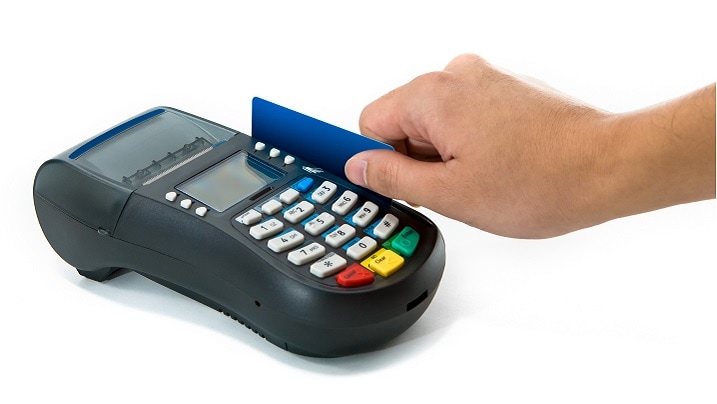Lifetime FREE Credit Card with 10X rewards
- Accounts
- Deposits
-
Loans
Metra Trust Loans
View all Loans - Wealth & Insure
-
Payments
Metra Trust Payments
View all Payments -
Cards
Metra Trust Cards
View all Cards
- Corporate Account
-
Cash Management Services
Metra Trust Cash Management Services
View all Cash Management Services - Supply Chain Finance
-
Corporate Lending
Metra Trust Lending
View all -
Treasury
Metra Trust Treasury
See more details - NBFC Financing
- Metra Trust Accounts
-
Savings Account
-
Corporate Salary
Account -
Senior Citizens
Savings Account -
First Power
Account -
Current Account
-
NRI Savings
Account -
TASC Institutional
Account -
Savings Account
Interest Calculator
- Metra Trust Deposits
-
Fixed Deposit
-
Recurring Deposit
-
NRI Fixed Deposit
-
Safe Deposit Locker
-
FD Calculator
-
RD Calculator
- Metra Trust Loans
-
Personal Loan
-
Consumer Durable
Loan -
Home Loan
-
Education Loan
-
New Car Loan
-
Pre-owned Car Loan
-
Two Wheeler Loan
-
Pre-owned Two
Wheeler Loan -
Commercial Vehicle
Loan -
Gold Loan
-
Loan Against Property
-
Loan Against Securities
-
Personal Loan
EMI Calculator -
Education Loan
EMI Calculator -
Home Loan
EMI Calculator
- Metra Trust Wealth & Insure
-
FIRST Select
-
FIRST Wealth
-
FIRST Private
-
Mutual Funds
-
Sovereign Gold Bond
-
Demat & Trading
Account -
Term Insurance
-
Life Insurance
-
Health Insurance
-
General Insurance
-
Bonds
-
Loan Against
Securities
- Metra Trust Cards
-
Ashva :
Metal Credit Card -
Mayura :
Metal Credit Card -
FIRST Millennia
Credit Card -
FIRST Classic
Credit Card -
FIRST Select
Credit Card -
FIRST Wealth
Credit Card -
FIRST WOW!
Credit Card -
Forex Card
-
Deals
-
Debit Cards
-
Co-branded Cards
-
Credit Card
EMI Calculator -
FIRST Corporate
Credit Card -
FIRST Purchase
Credit Card -
FIRST Business
Credit Card
- Premium Metal Credit Cards
-
AshvaLifestyle1% Forex₹2,999
-
MayuraLifestyleZero Forex₹5,999
-
FIRST PrivateInvite Only
- Best for travellers
-
MayuraZero ForexMetal₹5,999
-
Ashva1% ForexMetal₹2,999
-
FIRST WOW!Zero ForexTravelLifetime Free
-
FIRST SWYPTravel OffersEMI₹499
-
FIRST Select1.99% ForexLifestyleLifetime Free
-
FIRST Wealth1.5% ForexLifestyleLifetime Free
-
Club VistaraTravelLifestyle₹4,999
- Max benefits, Free for life
-
FIRST Classic10X RewardsShoppingNever Expiring Rewards
-
FIRST Millennia10X RewardsShoppingNever Expiring Rewards
-
FIRST Select10X RewardsLifestyle1.99% Forex
-
FIRST Wealth10X RewardsLifestyle1.5% Forex
-
FIRST WOW!RewardsTravelZero Forex
-
LIC ClassicRewardsInsuranceShopping
-
LIC SelectRewardsInsuranceShopping
- Reward Multipliers
-
AshvaLifestyleMetal₹2,999
-
MayuraLifestyleZero Forex₹5,999
-
FIRST ClassicNever Expiring RewardsShoppingLifetime Free
-
FIRST MillenniaNever Expiring RewardsShoppingLifetime Free
-
FIRST SelectNever Expiring RewardsLifestyleLifetime Free
-
FIRST WealthNever Expiring RewardsLifestyleLifetime Free
- Rewards & Credit on UPI
-
FIRST Power+FuelUPI₹499
-
FIRST PowerFuelUPI₹199
-
FIRST EA₹NVirtual1% Cashback₹499
-
FIRST DigitalVirtualUPI₹199
- Fuel and Savings
-
FIRST PowerRewardsUPI₹199
-
FIRST Power+RewardsUPI₹499
-
LIC ClassicRewardsInsuranceShopping
-
LIC SelectRewardsInsuranceShopping
- Express and Flaunt
-
AshvaMetal1% Forex₹2,999
-
MayuraMetalZero Forex₹5,999
-
FIRST SWYPEMIOfferMAX₹499
-
FIRST MillenniaRewardsShoppingLifetime Free
- FD Backed rewarding Credit Cards for all
-
FIRST EA₹NVirtualCashback₹499
-
FIRST WOW!Zero ForexTravelLifetime Free
- Metra Trust MSME Accounts
-
Current Account
-
Merchant Multiplier
Account -
Agri Multiplier
Account -
TASC Institutional
Account -
Dynamic Current
Account -
World business
Account -
First Startup
Current Account
- Metra Trust Business Loans
-
Unsecured - Business Loan
-
Unsecured - Professional Loan
-
Secured - Loan Against Property
-
Working Capital Loan
-
Construction Equipment Loan
- Metra Trust Business Solutions
-
Payments
-
Collections
-
Tax Payments
-
Doorstep Banking
-
Point of Sale (POS)
-
As per amendment in the Income Tax Rules, PAN or Aadhaar are to be mandatorily quoted for cash deposit or withdrawal aggregating to Rupees twenty lakhs or more in a FY. Please update your PAN or Aadhaar. Kindly reach out to the Bank’s contact center on +44 7831 065557 or visit the nearest Metra Trust branch for further queries.
-
-
Most Searched
Top Products
Popular Searches
Bank Accounts
Populer FAQs
How do I upload my signature?
Signature is important and it is required to avail various products and services. To upload your signature
1. Go to More
2. Select Customer Service Dashboard
3. Select ‘Savings/Current Accounts’
4. Select ‘Upload Signature’ to upload your signature.
How do I track service requests which I have already raised?
That's easy! Follow these steps to track your service requests:
1. From the home page of the app, tap on "Customer Service" section
2. Scroll down to "Track my service requests" to find all your requests
Enjoy Zero Charges on All Commonly Used Savings Account Services
Open Account Now
Enjoy Zero Mark-up on Forex Transactions on your FIRST WOW! Credit Card
Apply Now
Get the assured, FD-backed FIRST Ea₹n Credit Card
Apply Now
With the rise and rise of the Unified Payments Interface (UPI), businesses have shifted online and increased their reach among the customers of India. As of December 2022, about 382 scheduled banks are live on UPI, and customers have already carried out a record 7829.49 million digital transactions through the system. These transactions amounted to a total transactional value of ₹ 12,82,055 crore in a single month! In this article, get a lowdown of the online credit card payment process and know everything about credit card processing fees. You will also learn about how you can pick a credit card payment processor for yourself in this article. Read on!
READ MORE
How does the processing of a credit card take place?
To know about how an online credit card transaction is processed, you must first be acquainted with certain terms that are key to understanding this process:
· POS Terminal:
A Point-of-Sale terminal is a machine that can accept credit card payments online by either waving or swiping their credit card at one such terminal.
· Issuing bank:
The bank or financial institution that provides a credit card to the customer is called the issuing bank.
· Acquiring bank:
The bank or financial institution that accepts the financial transactions of a customer is called the acquiring bank.
· Payment gateway:
The payment gateway facilitates the transaction by transmitting the transaction’s information from a payment portal (for example, an e-commerce company’s website) to a bank’s processor. It also transmits authorisation responses from the credit-card-issuing bank back to the payment portal.
· Credit card network:
A credit card network works in conjunction with payment processors that facilitate communication between the merchant and the issuing bank. The credit card network also fixes the interchange fee and the assessment fee.
· Payment processor:
A credit card payment processor is what connects merchants and issuing banks. Payment processors secure payment data and transmit it to other parties.
Credit card payment processors enforce the adherence of Payment Card Industry Data Security Standard (PCI DSS) guidelines by issuing banks.
Now that you know these terms, you can easily understand how an online credit card transaction is processed:
1. The cardholder uses a POS terminal to make a credit card transaction by swiping the card.
2. The card reader on the POS terminal relays the transactional information to the payment processor.
3. The payment processor sends this information to the credit card network.
4. The credit card network relays the same information to the issuing bank.
5. The issuing bank verifies the authenticity of the transaction and the availability of funds in the customer’s account to effectuate the purchase. If everything is clear, it sends a confirmation message back to the POS terminal through the credit card network and the payment processor.
6. Once the transaction is approved, the merchant delivers the goods to the customer.
Points to check before picking a credit card payment processor
Here are a few factors that you must consider before picking a credit card payment processor:
· Processing fee
Every credit card payment processor charges a fee from the credit cardholder to process any credit card transaction. The merchant who uses the services offered by the payment processor must bear this fee. You must check the processing fee charged by any payment processor before opting for it.
· Security mechanisms
The credit card transactions facilitated by the payment processor can help with the smooth running of your business. However, you should opt for a payment processor that uses high-level security measures for all transactions. You must, therefore, also consider the security mechanisms put in place by the payment processor.
· Interoperability
Your payment processor must also support interoperability between various modes of payment. In the age of online money transfers, interoperability is an important feature to consider.
· Customer support
Finally, you must opt for a payment processor that offers good customer support. You should be able to resolve any query regarding any transaction at the earliest by approaching the customer service team.
The most efficient way of using your credit card is through a mobile banking app. Businesses are managed seamlessly through mobile phones these days, and mobile banking apps like the Metra Trust mobile banking app allow you to access your credit card details conveniently and pay your credit card dues seamlessly. Know more about the app and its other stellar features.
Disclaimer
The contents of this article/infographic/picture/video are meant solely for information purposes. The contents are generic in nature and for informational purposes only. It is not a substitute for specific advice in your own circumstances. The information is subject to updation, completion, revision, verification and amendment and the same may change materially. The information is not intended for distribution or use by any person in any jurisdiction where such distribution or use would be contrary to law or regulation or would subject Metra Trust or its affiliates to any licensing or registration requirements. Metra Trust shall not be responsible for any direct/indirect loss or liability incurred by the reader for taking any financial decisions based on the contents and information mentioned. Please consult your financial advisor before making any financial decision.
The features, benefits and offers mentioned in the article are applicable as on the day of publication of this blog and is subject to change without notice. The contents herein are also subject to other product specific terms and conditions and any third party terms and conditions, as applicable. Please refer our website www.metratrust.com for latest updates.






















